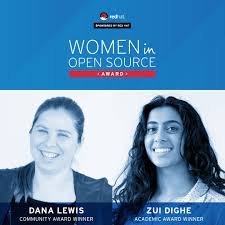medical innovation
See the following -
eTRIKS 'open source' EU project for sharing vital disease information
Developing a software system that enables pharmaceutical companies, governments, academia and hospitals to share information to advance our understanding of diseases is the focus of a major European Union funded project, which is led by researchers from Imperial College London. Read More »
- Login to post comments
Medicines for Malaria Venture Releases Report on how R&D Partnerships Serving Neglected Communities have Developed Dozens of Life-Saving Innovations Since 2010
 The public-private initiatives that contributed to COVID-19 vaccine and drug development have showcased a model for accelerating biomedical innovation. This is another powerful example of how public-private partnerships have established themselves as powerhouses for fighting global health threats. According to a new report launched today from a group of 12 product development partnerships (PDPs), over the last decade, such alliances have brought to market 66 new drugs, vaccines, diagnostics and other technologies for a number of diseases—including tuberculosis, malaria, HIV, meningitis and sleeping sickness. These innovations have reached and benefitted more than 2.4 billion people in low-income countries.
The public-private initiatives that contributed to COVID-19 vaccine and drug development have showcased a model for accelerating biomedical innovation. This is another powerful example of how public-private partnerships have established themselves as powerhouses for fighting global health threats. According to a new report launched today from a group of 12 product development partnerships (PDPs), over the last decade, such alliances have brought to market 66 new drugs, vaccines, diagnostics and other technologies for a number of diseases—including tuberculosis, malaria, HIV, meningitis and sleeping sickness. These innovations have reached and benefitted more than 2.4 billion people in low-income countries.
- Login to post comments
Red Hat Announces 2018 Women in Open Source Award Winners
 Red Hat, Inc...today announced Dana Lewis, founder of the Open Artificial Pancreas System (OpenAPS) movement, and Zui Dighe, a Duke University student, as the 2018 Women in Open Source Award winners. Both will be recognized today at Red Hat Summit, which is taking place in San Francisco this week. In its fourth year, the Women in Open Source Awards were created and sponsored by Red Hat to honor women who make important contributions to open source projects and communities, or those making innovative use of open source methodology.
Red Hat, Inc...today announced Dana Lewis, founder of the Open Artificial Pancreas System (OpenAPS) movement, and Zui Dighe, a Duke University student, as the 2018 Women in Open Source Award winners. Both will be recognized today at Red Hat Summit, which is taking place in San Francisco this week. In its fourth year, the Women in Open Source Awards were created and sponsored by Red Hat to honor women who make important contributions to open source projects and communities, or those making innovative use of open source methodology.
- Login to post comments
The Evolving Role of Open Source Software in Medicine and Health Services
In this article, we highlight the barriers to progress and discuss the dangers of pursuing a standardization framework devoid of empirical testing and iterative development. We give the example of the openEHR Foundation, which was established at University College London (UCL) in London, England, with members in 80 countries....We argue that such an approach is now essential to support good discipline, innovation, and governance at the heart of medicine and health services, in line with the new mandate for health commissioning in the United Kingdom's National Health Service (NHS), which emphasizes patient participation, innovation, transparency, and accountability. Read More »
- Login to post comments